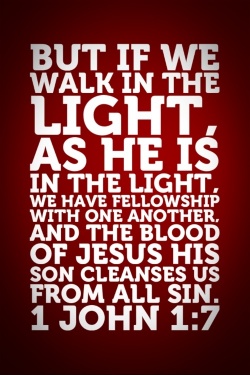Have you ever wondered if you can be blotted out of the book of life? Many people have this fear.
The reason that some people wonder if they can be blotted out of the book of life is because there are a few verses in the Bible which seem to indicate that this is a distinct possibility.
However, when you understand what the Book of Life actually is, you will also come to understand what these tricky Bible passages mean.
This article is a summary of what people in my discipleship group learn when they take my online course, The Gospel Dictionary. The lesson on the book of life defines the term and looks at several key Bible passages which teach about it.
This post defines the term and looks at just one passage: Revelation 3:5. Let us begin with defining the term “book of life.”
What is the Book of Life?
 The Book of Life is a translation from the Greek phrase tō biblō tēs zōēs. The phrase “the Book of Life” or “the Book of the Living” are fine translations for this phrase.
The Book of Life is a translation from the Greek phrase tō biblō tēs zōēs. The phrase “the Book of Life” or “the Book of the Living” are fine translations for this phrase.
What matters more than the translation, however, is the nature of this book. What is this book? Why was it written? What does it mean to have your name written in the book? Can your name be removed from the book? If so, how does this happen and what does it mean?
All these questions must be answered as we seek to understand the Book of Life in Scripture.
Three Ways the Book of Life is mentioned in the Bible
There are three main ways the Book of Life is mentioned in the Bible. There is the Book of the Living (Ps 69:28), the Book of Life (Php 4:3; Rev 3:5; 20:12, 15), and the Lamb’s Book of Life (Rev 13:8; 21:27).
Generally speaking, it appears that the first two phrases refer to a book which contains the names of every person who has physical life upon the earth.
The third phrase, the Lamb’s Book of Life, refers to a book which contains the names of every person who has eternal life in Jesus Christ.
There are numerous questions about the Book of Life. For example, some wonder whether or not these books actually exist, or if they symbolize some sort of divine mental list about who has life and who does not. And then there is the debate about how many books there are. Is it one, two, or three books? But such a debate hardly matters.
Whether Scripture is talking about keeping your name in the one Book of Life or having it transferred from the Book of Life to the Lamb’s Book of Life, the point remains the same: Whoever has their name written in the Book of Life (whether it is one book or two) is still alive. More importantly, there is a way to keep your name written in the Book of Life, even after you die.
One common view (which I held for many years) is that there are two books, the Book of Life, which contains the list of everyone who is alive, and the Lamb’s Book of Life, which contains the list of everyone who has eternal life in Jesus.
The alternative view, which is the view I now hold, is that there is only one Book of Life. When people die, their names are removed from the Book of Life. However, those who have everlasting life in Jesus Christ can never have their names removed from this book.
When a person believes in Jesus, their name, which had been written in “erasable” pencil, is now copied over with the permanent ink of the Blood the Lamb. Once this happens, it can never be removed or erased.
Therefore, eventually, at the end of human history, the Book of Life will contain only the names of people who have eternal life in Jesus. At this point, the Book of Life becomes known as the Lamb’s Book of Life, for it contains the list of everyone who has life in Jesus, the Lamb of God.
 Whichever approach you choose, it is important to note that while Scripture does teach about getting blotted out of the Book of Life, this does not ever refer to losing eternal life. While a person might get their “penciled” name erased from the Book of Life when they die, once a person’s name is written in permanent ink, it cannot ever be blotted out.
Whichever approach you choose, it is important to note that while Scripture does teach about getting blotted out of the Book of Life, this does not ever refer to losing eternal life. While a person might get their “penciled” name erased from the Book of Life when they die, once a person’s name is written in permanent ink, it cannot ever be blotted out.
However, lots of people struggle with various passages in the Bible which seem to indicate that a person can lose their eternal life by being blotted out of the book of life. Revelation 3:5 is one such text.
Being blotted out of the book of Life in Revelation 3:5
Revelation 3:5 says this:
He who overcomes shall be clothed in white garments, and I will not blot out his name from the Book of Life; but I will confess his name before My Father and before His angels.
Revelation 3:5 has caused a lot of angst among Christians over the years, for it seems to imply that Jesus might, in fact, blot their names out of the Book of Life.
This verse appears in the Letter to the church in Sardis, and Jesus says that if they overcome, they will be clothed in white garments and will not be blotted out of the Book of Life.
To be an overcomer, one must not just live their life as a Christian, but must faithfully love, serve, and honor Jesus throughout their Christian life (Overcomer is another term I discuss in the Gospel Dictionary online course).
Some take from this, therefore, that those who fail to faithfully love, serve, and honor Jesus throughout their life will in the end have their name blotted out of the Book of Life, thus losing their eternal life.
Due to such teaching about this verse, many Christians live in fear of losing their eternal life if they do not follow and obey Jesus faithfully.
But this is not what Revelation 3:5 is teaching.
Citizenship Rosters in Sardis
The first thing to recognize is that numerous towns in John’s had citizenship rosters which contained the names of citizens. When a person died, they were removed from the roster.
But if a person brought great shame upon the town through committing various crimes, this also might lead to being removed from the roster. There are records of this happening to various citizens in Sardis.
Notice that Jesus says that He will never remove the name of an overcome from the roster. Quite the contrary, Jesus promises to praise their name in the heavenly courts, before God and the angels. This is a great honor that Jesus promises to those who faithfully serve and obey Him.
Jesus says there are a few names in Sardis who are on track for receiving this great honor (Rev 3:4). But what about those who fail to overcome? What about those who have defiled their garments and who have brought shame upon Jesus and His church?
The answer is that Jesus says nothing about them. Just because Jesus says He will greatly honor those who overcome, this does not mean that He will shame or dishonor those who do not.
 He says he will come like a thief in the night (Rev 3:3), but this does not mean that He will come to kill them or take away their eternal life. Jesus says that unfaithful servants will not be honored the same way that faithful servants will be, but He is not saying that unfaithful servants will be cast out, killed, or have eternal life removed from them.
He says he will come like a thief in the night (Rev 3:3), but this does not mean that He will come to kill them or take away their eternal life. Jesus says that unfaithful servants will not be honored the same way that faithful servants will be, but He is not saying that unfaithful servants will be cast out, killed, or have eternal life removed from them.
Litotes in Revelation 3:5
Support for this approach is found in the fact that John is using a figure of speech called litotes. Litotes is when we state a positive as a negative as a way of emphasizing the positive.
We use this figure of speech all the time.
Let us say that your favorite football team is having a fantastic year and have gone undefeated. This coming Sunday, they are facing a team that so far has not won a single game. If I ask you whether you think your team will win, you could simply say “Yes, they are certainly going to win,” but you might also say, “If they play like they’ve been playing, they will definitely not lose.”
In that second statement, do you see how a positive is stated in a negative way? When you state that they will definitely not lose, you are using a negative to emphasize the almost certain fact that they will indeed win.
But notice something interesting about litotes. Although you use a negative to emphasize the positive, this does not mean that the opposite is true.
Take your undefeated football team again. Let us say that instead of playing as they have been playing all year, they instead play the worst game of the season. The quarterback throws interceptions. There are numerous fumbles and penalties. The defense never really gets going. They play an absolutely terrible game.
But even so, does this mean that they will automatically lose the game? Not necessarily. Even though they play poorly, they might still win the game. It might not be the absolute blowout that it could have been, but they might still squeak through with a victory.
Maybe another example of litotes will help.
What you think if you overheard a man say, “If my wife makes me an apple pie, I will not stop loving her”?
Would you assume from that statement that if this man’s wife did not make me an apple pie that he would stop loving her? No, probably not.
Instead, you would understand that he does love her, and that if she makes him an apple pie, he would love the pie, and would show great appreciation to his wife.
This is also how to understand Revelation 3:5.
One of the blessings pronounced on overcomers is that they will not be blotted out of the Book of Life. When we understand this as litotes, we understand that Jesus is saying that those who overcome will not only keep their name in the Book of Life because they are believers, but will receive greater blessings from God and greater experience of life with God. They will receive white robes and will receive special recognition before God and the host of angels.
Notice, of course, that just as with the football and apple pie examples, the opposite of the Revelation 3:5 litotes is not true.
Many pastors and teachers say that if someone does not overcome, then their name will be blotted out of the Book of Life. But Revelation 3:5 doesn’t say that at all. Revelation 3:5 does not say that those who fail to overcome will be blotted out of the Book of Life.
Even if your football team does not play up to their ability, this does not necessarily mean they will lose the game this weekend.
Even if a man’s wife does not make apple pie, this does not mean that he will stop loving her.
Even if a Christian fails to overcome, this does not mean that their name will get blotted out of the Book of Life.
So no Christian can Ever be Blotted out of the Book of Life
The Book of Life can be understood simply as the roster of the living. It is a list, or register, of all living people. When a person dies, their name is removed from this list.
However, when a person receives everlasting life from Jesus, their name remains in the Book of Life, for even though they die, they will live again, and will live forever.
At the end of time, when the only people who remain are those who have eternal life in Jesus, the Book of Life becomes known as the Lamb’s Book of Life, for the only names that will remain in the book are those written in the permanent ink of the blood of the Lamb.
Do you have further questions or comments about the book of Life? Leave them in the comment section below, or (better yet) join my online discipleship group and take the lesson on this important word from the Bible. See you there!
 Understanding the Gospel requires us to properly understand the key words and terms of the Gospel. Take my course, "The Gospel Dictionary" to learn about the 52 key words of the Gospel, and hundreds of Bible passages that use these words.
Understanding the Gospel requires us to properly understand the key words and terms of the Gospel. Take my course, "The Gospel Dictionary" to learn about the 52 key words of the Gospel, and hundreds of Bible passages that use these words.
This course costs $297, but when you join the Discipleship group, you can to take the entire course for free.




 1 John 1:7-10 does get discussed in various ways through my online course “
1 John 1:7-10 does get discussed in various ways through my online course “ And while it is true that they might be guilty of some of the things we accuse them of, the human tendency is to amplify the sinful behavior of others so that we can turn them into monsters, and dehumanize them, so that we can condemn them, or send them into exile, or even kill them in the name of God.
And while it is true that they might be guilty of some of the things we accuse them of, the human tendency is to amplify the sinful behavior of others so that we can turn them into monsters, and dehumanize them, so that we can condemn them, or send them into exile, or even kill them in the name of God. There are
There are  The blood of Jesus is not a spiritual antidote to sin which somehow removes the polluting presence of sin from our lives.
The blood of Jesus is not a spiritual antidote to sin which somehow removes the polluting presence of sin from our lives. John is primarily interested in make sure that his readers recognize how they have been involved in the violent, bloody, accusatory, scapegoating practices that run this world, and turn from such behaviors to walk in the light of God’s love.
John is primarily interested in make sure that his readers recognize how they have been involved in the violent, bloody, accusatory, scapegoating practices that run this world, and turn from such behaviors to walk in the light of God’s love.
 The basic message of Ephesians is that due to religion, humans have lived in rivalry and violence with each other since the foundation of the world, but now, in Jesus Christ, we have been shown a new way of living life so that all the hostilities can now cease.
The basic message of Ephesians is that due to religion, humans have lived in rivalry and violence with each other since the foundation of the world, but now, in Jesus Christ, we have been shown a new way of living life so that all the hostilities can now cease.
 Paul’s point in these verses is that even though we humans accusation, blame, condemn and kill others in God’s name (Ephesians 2:1-3), God Himself does not behave that way toward us.
Paul’s point in these verses is that even though we humans accusation, blame, condemn and kill others in God’s name (Ephesians 2:1-3), God Himself does not behave that way toward us. By looking at Ephesians 1:7 and Ephesians 2:13, we now understand how the blood of Jesus redeems us.
By looking at Ephesians 1:7 and Ephesians 2:13, we now understand how the blood of Jesus redeems us.
 But I bet you want a better explanation …
But I bet you want a better explanation … In reference the New Covenant, the blood of Jesus signaled that this New Covenant was now in effect. In essence, Jesus died to inaugurate or enact the New Covenant.
In reference the New Covenant, the blood of Jesus signaled that this New Covenant was now in effect. In essence, Jesus died to inaugurate or enact the New Covenant. There is charizomai forgiveness and aphēsis forgiveness. Charizomai forgiveness is based on the free grace (charis) of God and is freely extended to all people throughout all time for all sins, with no strings or conditions attached.
There is charizomai forgiveness and aphēsis forgiveness. Charizomai forgiveness is based on the free grace (charis) of God and is freely extended to all people throughout all time for all sins, with no strings or conditions attached.

 But then many Christians turn right around and say, “But in the future, Jesus is going to return to this earth, and slaughter millions of people. There will be the greatest, bloodiest war the world has ever seen. When Jesus returns at the battle of Armageddon, the Valley will be filled with blood up to the horse’s bridle.”
But then many Christians turn right around and say, “But in the future, Jesus is going to return to this earth, and slaughter millions of people. There will be the greatest, bloodiest war the world has ever seen. When Jesus returns at the battle of Armageddon, the Valley will be filled with blood up to the horse’s bridle.”

 In this text, Jesus provides a summary of how He reads and understands the Old Testament. This is “The Old Testament according to Jesus.” And according to Jesus, the Bible is filled with violent bloodshed.
In this text, Jesus provides a summary of how He reads and understands the Old Testament. This is “The Old Testament according to Jesus.” And according to Jesus, the Bible is filled with violent bloodshed.
